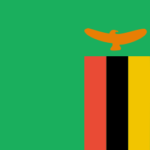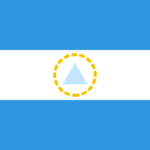Fees for registering Lesotho trademarks
Service Process
Trademark registration time
The current trademark regulations in Lesotho are mainly based on the Industrial Property Law, which came into effect on June 5, 1989 and was revised in 1997. The Trademark Registry is responsible for managing trademark affairs, and the official language is English. Trademark exclusive rights need to be obtained through registration. Trademark registration is not mandatory, but in order to protect the trademark or renew it, it must be registered in accordance with the law. The trademark registration in Lesotho adopts the principle of "application first".
Lesotho is a signatory to international intellectual property treaties such as the Paris Convention and the WIPO Convention, and a member of the Madrid Agreement and the Madrid Protocol. Therefore, trademark registration can be processed through "single country registration" or "Madrid international registration".
Trademark Registration Process
At present, Lesotho adopts the Nice classification of goods and services descriptions and accepts applications for multiple categories in one form. The elements that can be registered as a trademark include: text, graphics, colors, letters, three-dimensional logos, etc.
If the applicant does not reside in Lesotho, they must entrust a specialized agent in their home country to handle the matter. The basic materials required for trademark application are:
1. Trademark design;
2. Specific categories and product/service items;
3. Name and address of the applicant;
4. Power of attorney;
5.If priority is declared, priority proof documents and corresponding translations must be provided.
The main process for applying for registration of a trademark in Lesotho is: application, acceptance, examination, announcement, approval, and issuance of a certificate. The application will be accepted 1-2 weeks after submission. The examiner will conduct formal and substantive examinations on the application. The old-fashioned review mainly examines whether the application requirements and classification information comply with regulations; The substantive examination includes the examination of the distinctiveness of the trademark, whether there are anti registration and prohibition clauses, and whether there is a conflict with the prior trademark. If the examination fails, a notice of rejection will be issued and the applicant will be required to respond within the time limit specified in the notice of rejection. If the substantive examination passes, it will be published in a public notice. Three months from the announcement date is the objection period, during which any interested party or prior rights holder may raise objections. The main reasons for raising objections are:
1. Conflict with prior trademarks, such as owning a prior registered trademark;
2. The trademark lacks distinctiveness;
3. The trademark has adverse effects;
4. Malicious registration;
5. Conflict with other prior rights, such as trade name rights, design rights, copyrights, personal names, etc.
If there are no objections or objections are not valid during the announcement period, registration can be approved and a registration certificate can be issued. If everything goes smoothly, it will take about 2 years for the registration of the Lesuto trademark; If things don't go smoothly and there are objections or rejections along the way, the time will be greatly extended.
Trademark registration materials
The Lesotho trademark is valid for 10 years after registration, starting from the date of application; Renewal can be processed within 6 months before the expiration date, with a grace period of 6 months; The renewal is valid for 10 years.
Start Your Trademark Business
Start Registration

do not understand? Contact us

do not understand? Contact us

do not understand? Contact us

do not understand? Contact us


 Lesotho
Lesotho